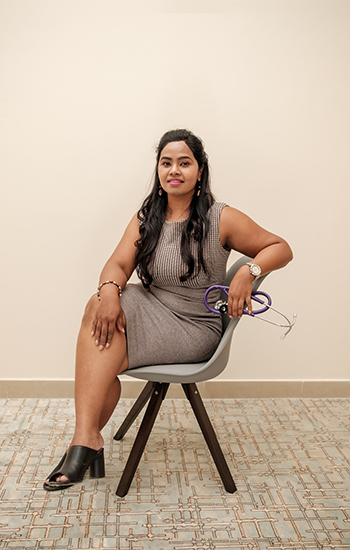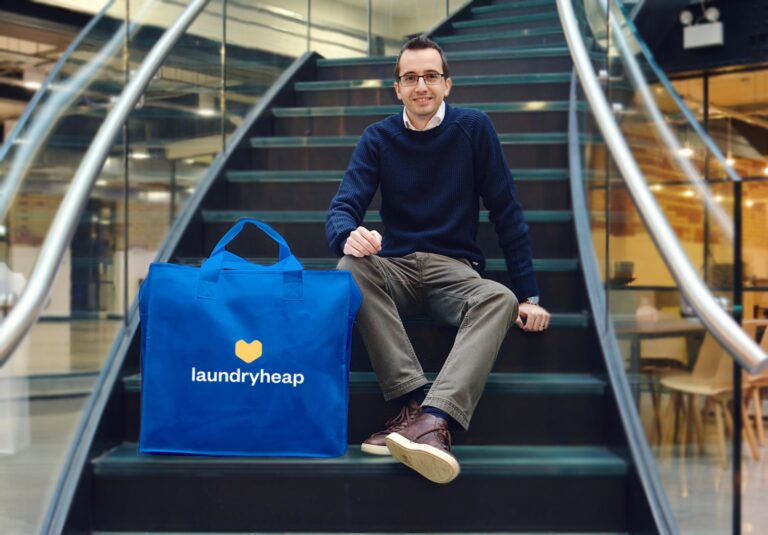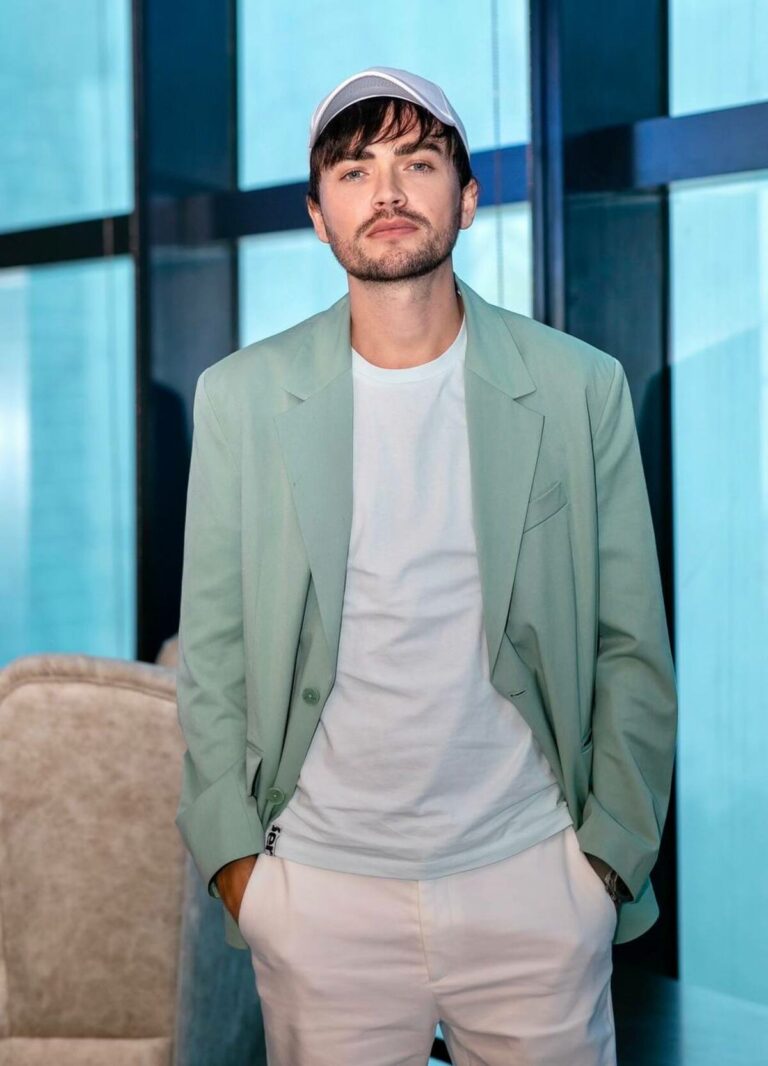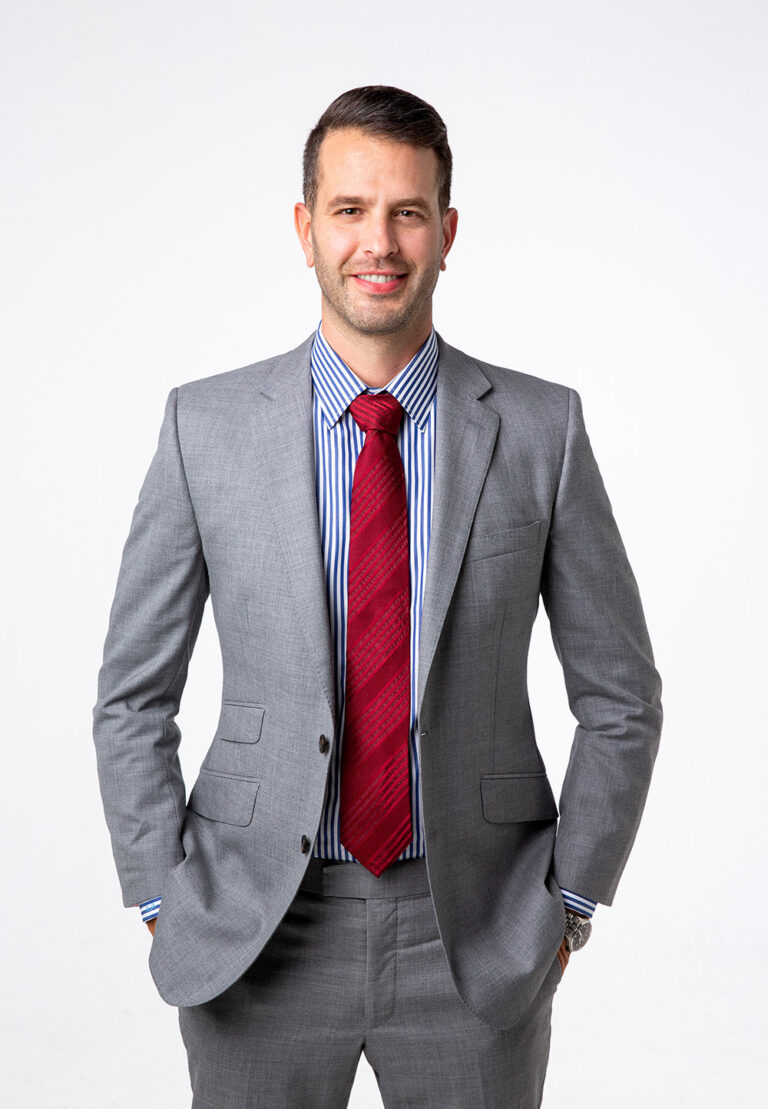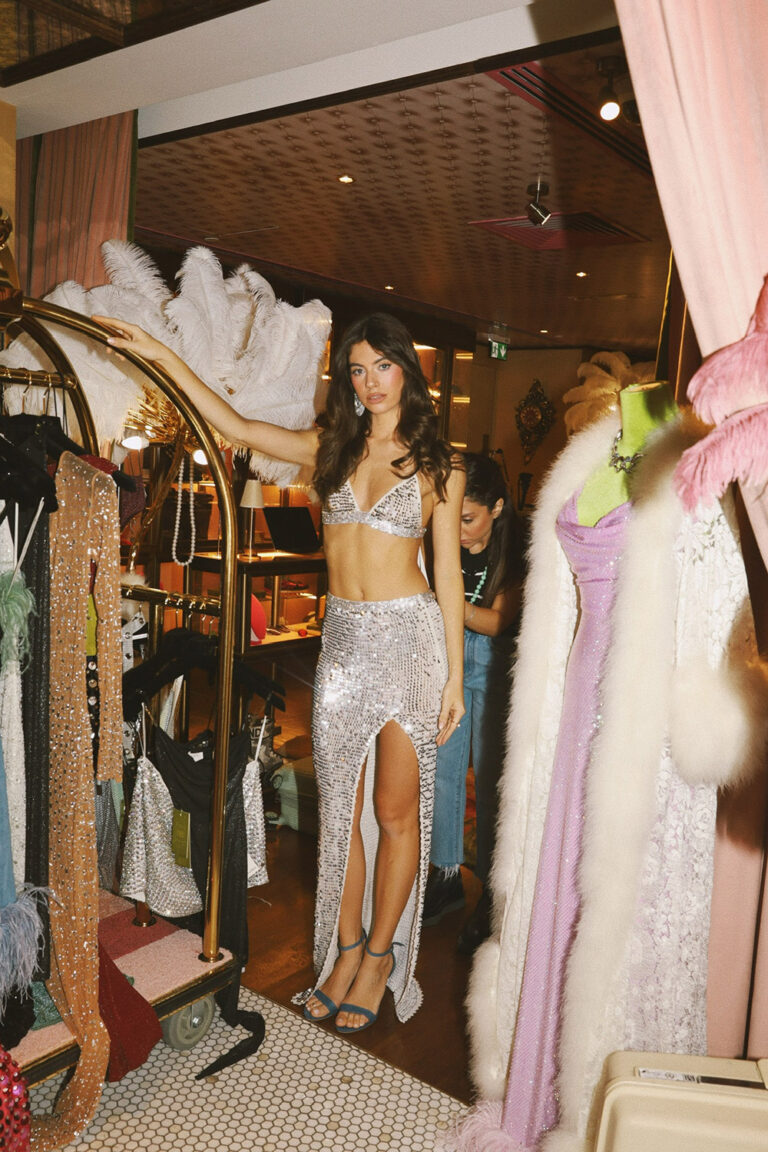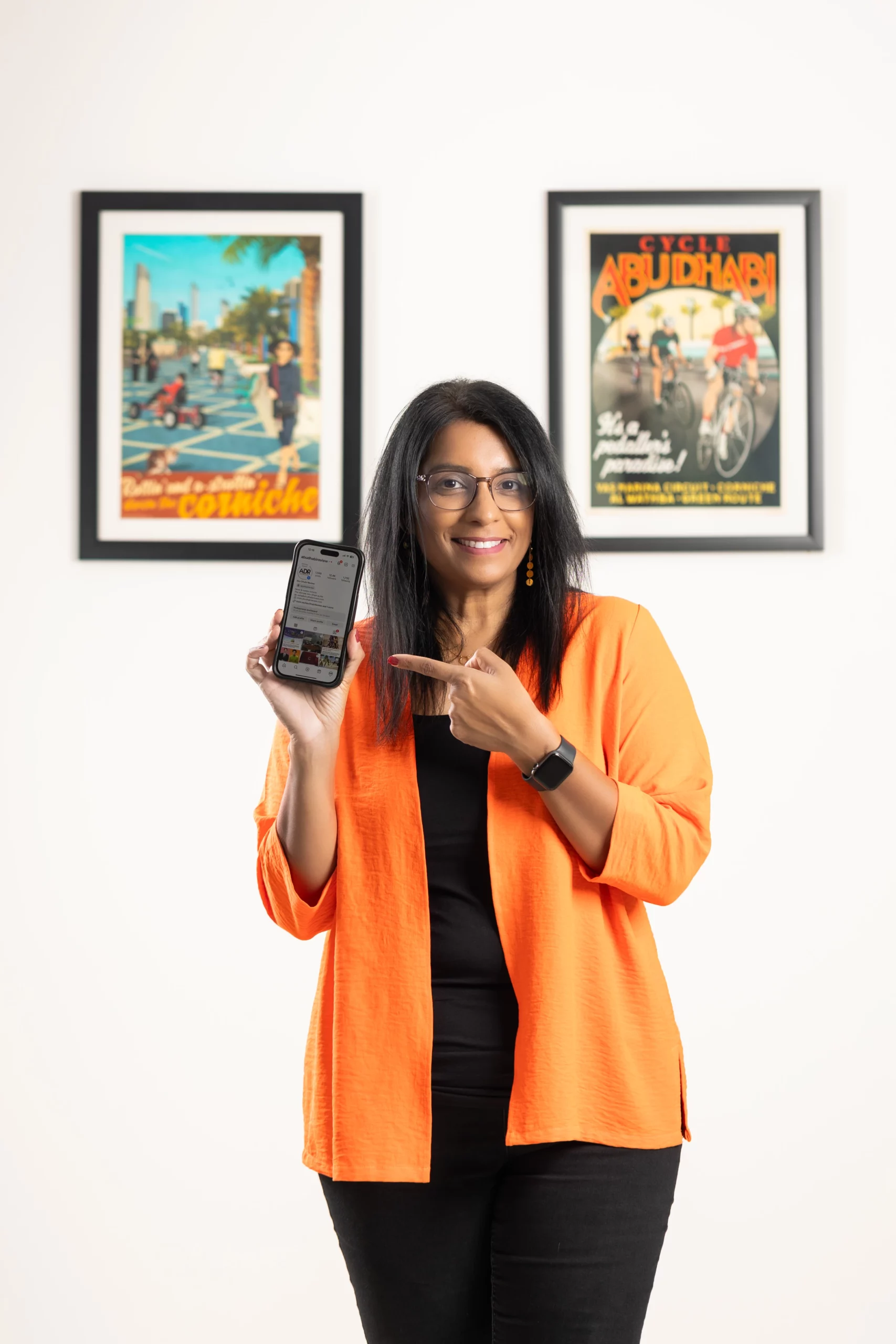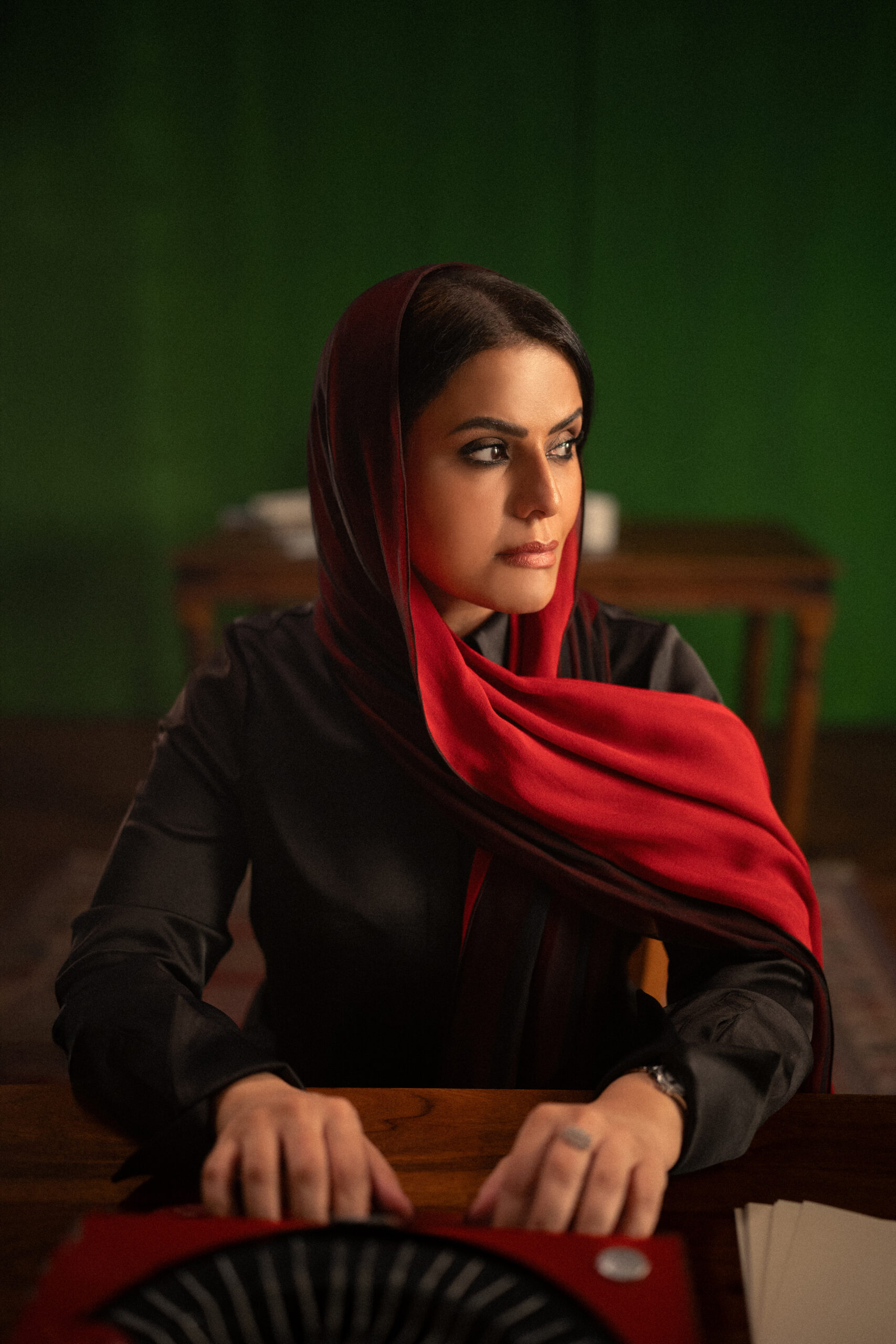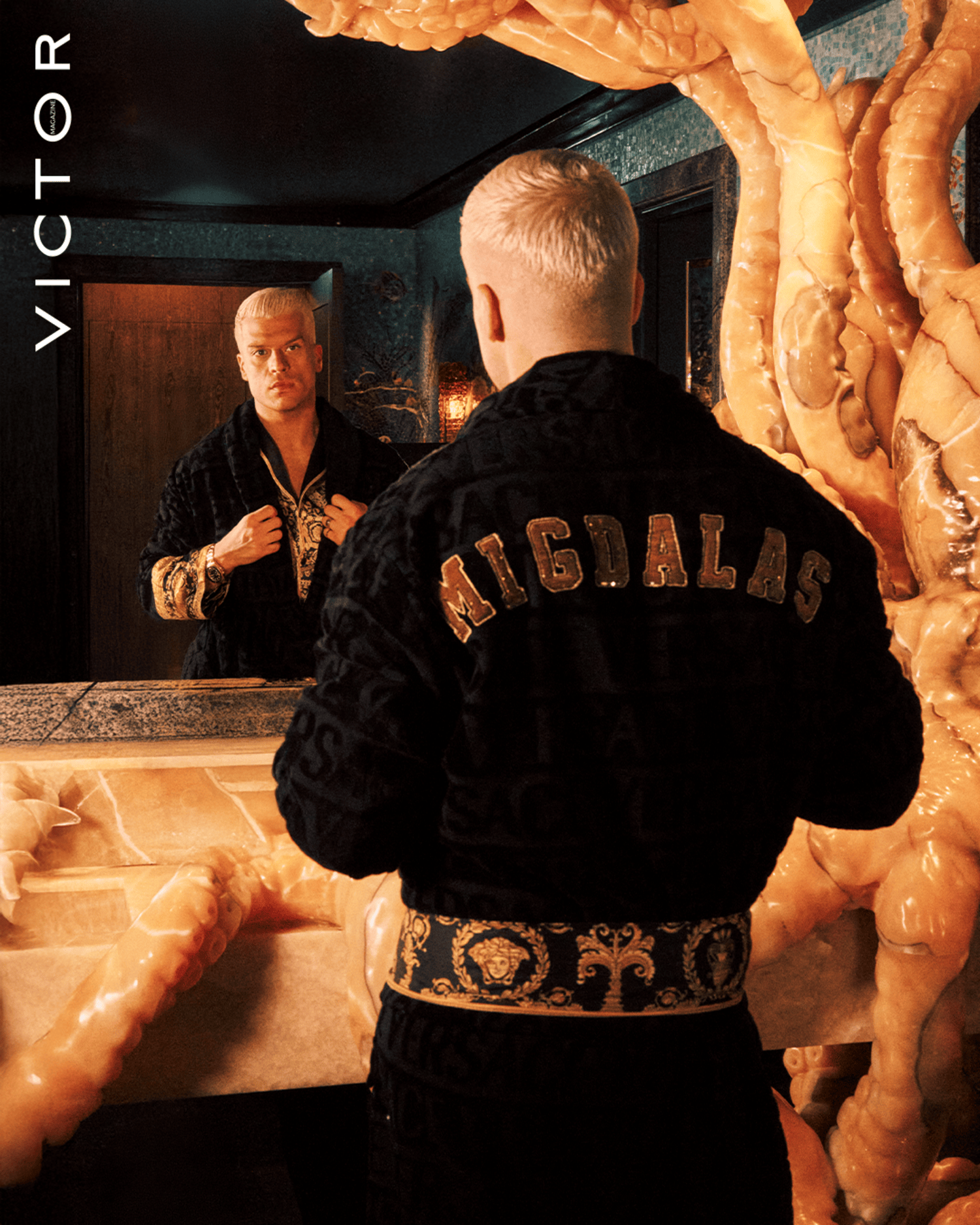
The Many Faces of Tabassum
Gayathri R.
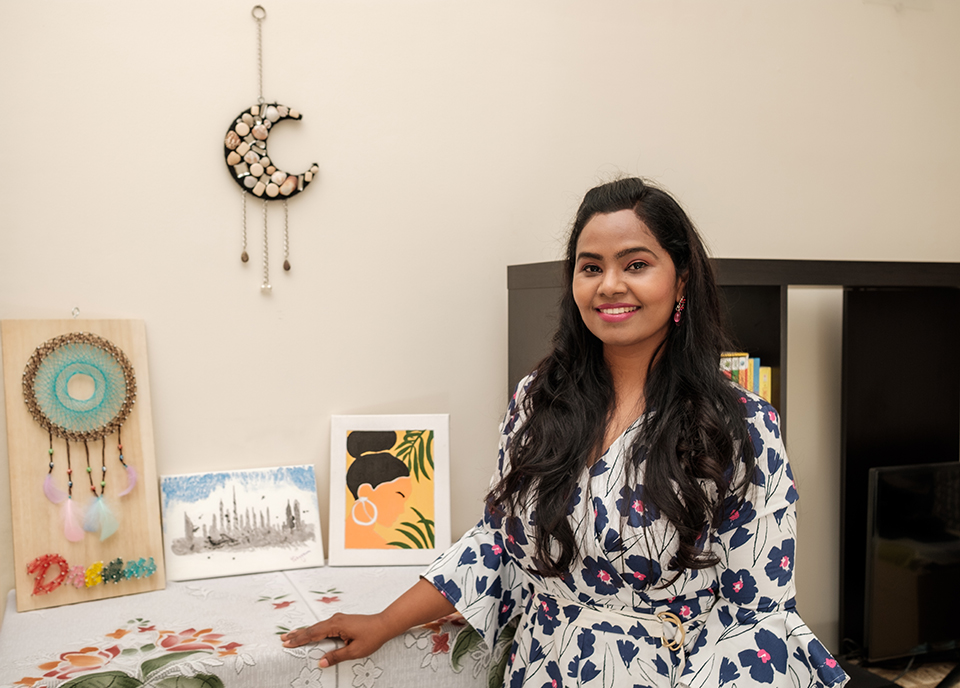
- Photo by: Joaquim Gonsalves
A doctor by profession, an actor by passion – Dr. Tabassum Inamdar juggles many hats. She calls herself a curious human being, an evolutionary work-in-progress, creative and adventurous. To make a change, you have to be the change.
The first time I ‘saw’ the calm and composed Dr. Tabassum on the stage, performing with a group of theatre artistes in an Indian regional play. Later I gathered that Inamdar joined the team for the play just 3 days prior to the show. While the rest had been rehearsing over months, this wonder woman hardly got 15 hours to learn her lines, rehearse and perform.
The second time I ‘met’ (this time we shared the same table) her, at a local café hosting different kinds of performing arts and artists. A brief conversation with this inimitable woman made me think. Here is someone who seemed to possess the ability to inspire people to join her in her quest, even when they are incapable of seeing what she sees. Adaptability looked like her second name. Almost everyone in there seemed to know her, demonstrating how easy it may be for her to fit into most social set up and vocational fields! Indisputably, passion and hard work have helped carve out a niche for herself.
She leaves an indelible mark with her incredible talent and by staying true to herself. “I would like to leave a trail and brighten up each life that I touch upon, with my smile, even if it is momentary, just like a meteor shower brightens the sky as it shoots”, says Dr. Tabassum.
With a constantly-working brain, trying to balance the right and the left-brain engagement through science of medicine and art of drama, here’s a glimpse about this aspiring storyteller.
Q.1 Can you describe to us what sparked your passion and interest in theatre? What is it about acting that speaks to you?
Medical profession is a challenging environment which demands a doctor to be detached from emotions. I find “Drama”the apt opportunity to reconnect with those humane emotions and compassion. The language of acting, through different characters, helps fill that vacuum, and express inner emotions to the outer world. Rather, it helps us transcend into a different world.
Q.2 Which types of acting do you enjoy and love performing the most? As an actor, what emotion do you feel is the hardest to portray?
I have always loved playing comic roles as well as roles which are very real and relatable. I feel, if the audience can see themselves in the story, they enjoy it the most. When acting, you just don’t depict an emotion, you tend to depict a story. So, you need to find the sweet spot of over-doing or under-doing it
I played “Ti phulrani” (adaptation of My fair lady) recently. The role had so many shades- comedy, drama, frustration, anger and then forgiveness. To compile all in a very short amount of stage time was challenging as an actor and director. But the beauty of this character was that it was so Humane, that I enjoyed every bit of it.
Another role I played on stage was Lord Krishna. Krishna as we know is the pleasant, playful, calm, composed and a charming character. The script demanded Krishna to get angry, which for me, was almost unheard of. It was also based in the Mahabharata era, so it needed a lot of training and guidance from the director. That is one of my favourite roles by far.
Apart from acting, I do write – be it short stories, monologues, scripts- and most of the times I have staged my own scripts-which the audiences have loved. Somehow my stories, end up being comedy even if the theme is as serious as murder.
Q.3 What are some of the steps you take to fully comprehend the crux and importance of your character to the story?
Every actor has their own method. I personally like to create a character sketch – where is it coming from, family background, work profile, socio-economic aspects, body language up to the extent of what it might be doing before we enter it into the story. I need to understand the WHY of the character. Then the WHAT and HOW would be easy to find. Once you have the outline- you can bring in lots of nuances. Being a doctor, you are trained to observe a lot of things around a case. That training helps me to get into a story without biases and build it up from there.
Q.4 Are there any role models in acting that you look up to? Why?
I was fortunate to have grown up watching Doordarshan (Indian national TV) which opened my eyes to a lot of actors, who later made it big in Bollywood. Naseer sahab, Manoj Bajpayee, Irfan khan, Shabana Azmi, Ratna Pathak- the list can go on. Each one of them has something to offer. I think, if one has an open mind, you can learn from anyone, be it a 5 year old kid jumping in excitement or a security guard at a bank standing with poker face. The Dubai theatre community is more like a close-knit family. All of us have a full-time job and most get into theatre out of passion. Each one is more than willing to help the other learn, grow and prosper- so that the spirit of Theatre keeps alive.
Q.5 What were some of the challenges you had faced when you first ventured into theatre? What have those experiences taught you?
I have been a good orator since school days, so the stage was always a comfortable space. But acting was a different ball game altogether. Breaking the stereotypes inside your own mind was my biggest challenge. The boundaries I created in mind, made me hesitate even to audition for certain roles. But if you do not audition- the role would never be yours.
Time constraints due to demanding jobs was another hurdle. But only later I realised that most of the other artists were also in similar situations, but still made time. So, I started prioritising my time and effort.
There was a phase when I was placed in Fujairah. I used to drive down almost daily to Dubai, finish rehearsals and go back. But the team also was supportive. But it starts within yourself- the right attitude and right mindset always works wonders.
Changed mind-set helped me work in multiple languages- English, Hindi, Marathi- and would like to take up challenges with more languages too.
Q.6 What do you feel is more important for an actor? Talent or training?
I think it’s a mix of both. Talent brings the drive to learn new things. But to keep that fire alive, you need the right guidance- else it fizzles off sooner than a soda bottle. You have to learn the technicalities- be it availing light of stage or projecting voice. Getting training from the right people is very important. Talent would enhance and fine tune the performance further.
It’s like Music- you need to learn to play it by the rules, then you must forget the rules and play from your heart.
Q.7 If you were given the opportunity to emulate any well-known character, be it in movies, television or theatre, which character would it be and why? What makes that particular character stand out from the rest?
I have always been fascinated by warriors and valour. I was part of a documentary which was based on women empowerment. In the process, our whole team went through a workshop of Jui Jitsu martial arts. That experience was exhilarating and empowering. If given a chance, I would like to play the role of Warrior princess Razia Sultana, one of 1st female rulers. Her story, though not told many times, is a celebration of womanhood, leadership, bravery and breaking of stereotypes.
Q.8 Are there any dream roles or plays you are looking forward to? What advice would you like to offer to budding actors who are struggling to find their voice?
Stories aspire to me more than the roles. I am currently working on a script for my next short-film under my banner “My own productions”. This story is very close to my heart. Soon it would be either on YouTube or some other OTT platform.
I am also adapting Pygmalion in Hindi for a short play soon to be staged.
I have written a cute script about Tooth-fairy- but would wait for the pandemic to finish, as it’s not completely safe for kids to perform in a crowd.
My advice for budding actors is never stop believing in yourself.
Step out of your comfort zones- to rather stretch your comfort zones to accommodate change- because change is the only constant.
Be open to learning new things and practise it to perfection.
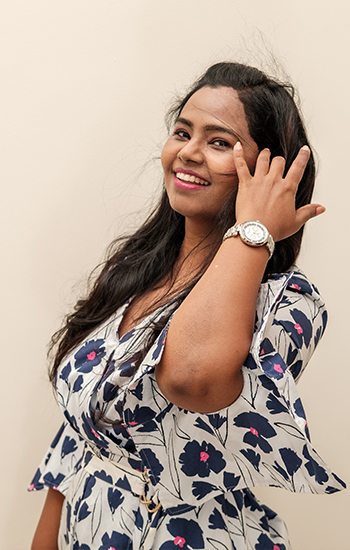
By Author

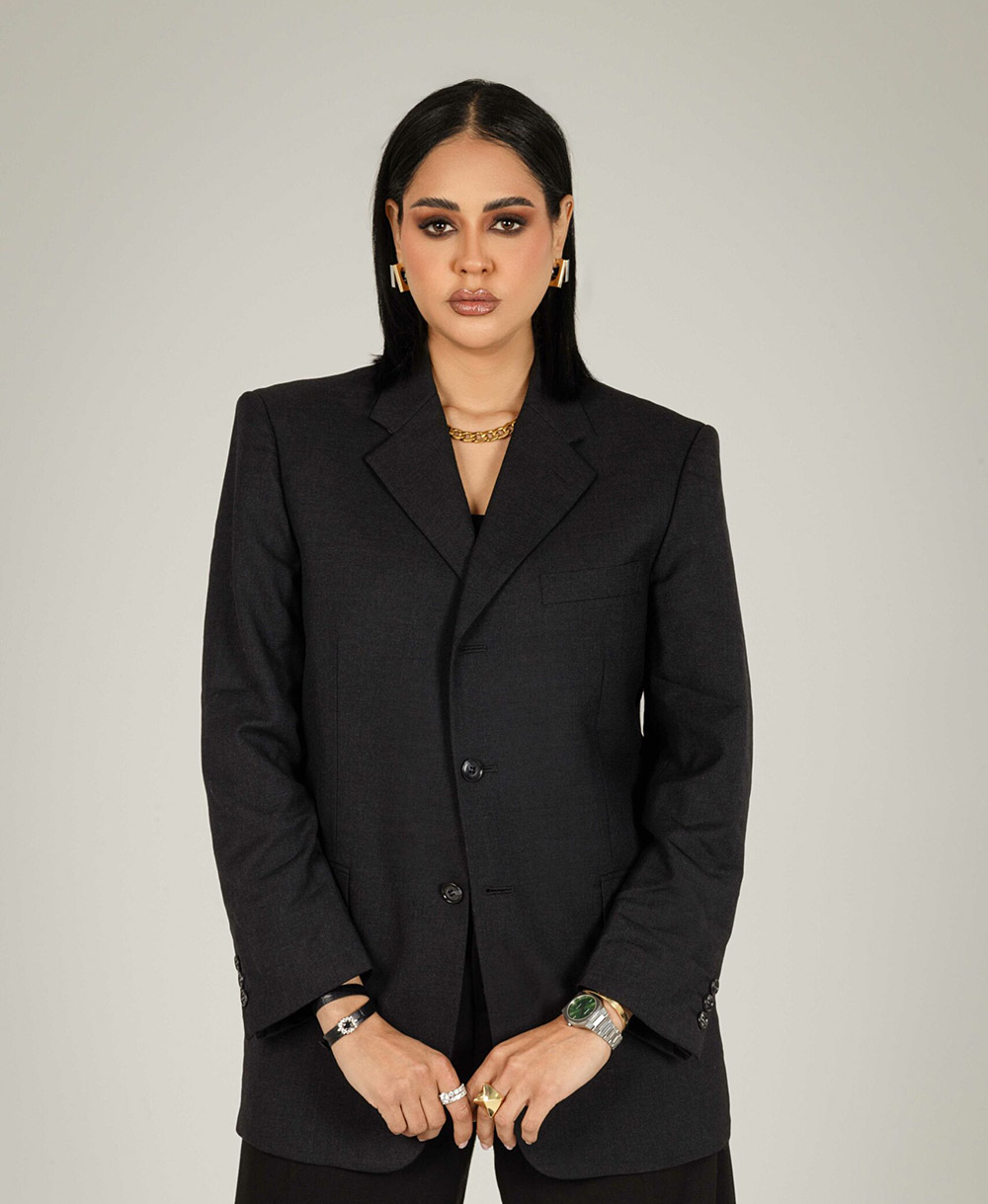
From Calculations to Camera: Basma Mostafa’s Bold Leap into the Unknown

Stop Blaming. Enough Is Enough: Words @ 3AM By Gayatri.R
no related post found

Beyond the Expected: John Migdalas on Today’s Luxury
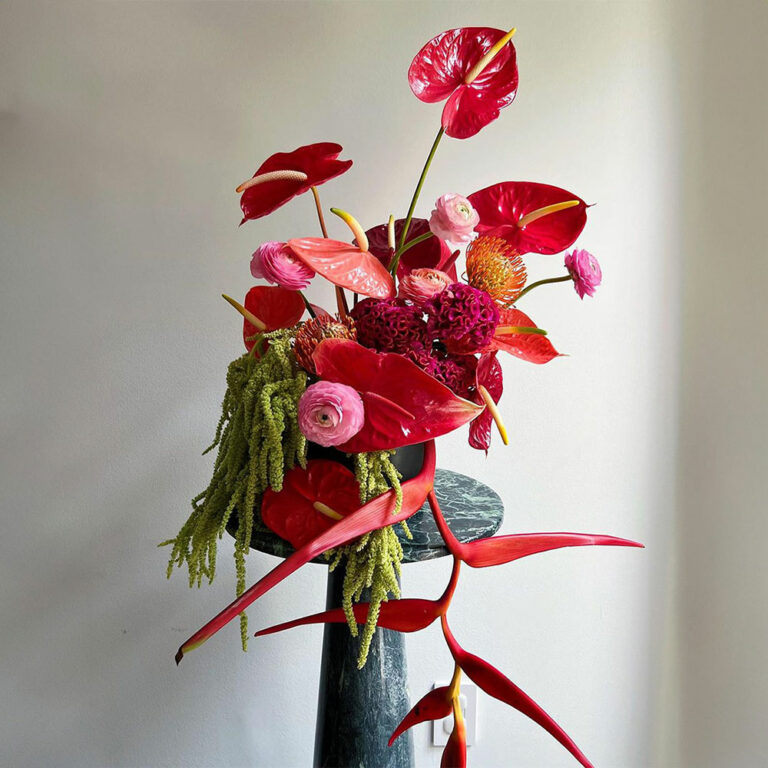
“Flowers are our favorite F word!”

Indulging in Love and Flavor at Playa: A Valentine’s Day Delight

Beyond the Expected: John Migdalas on Today’s Luxury
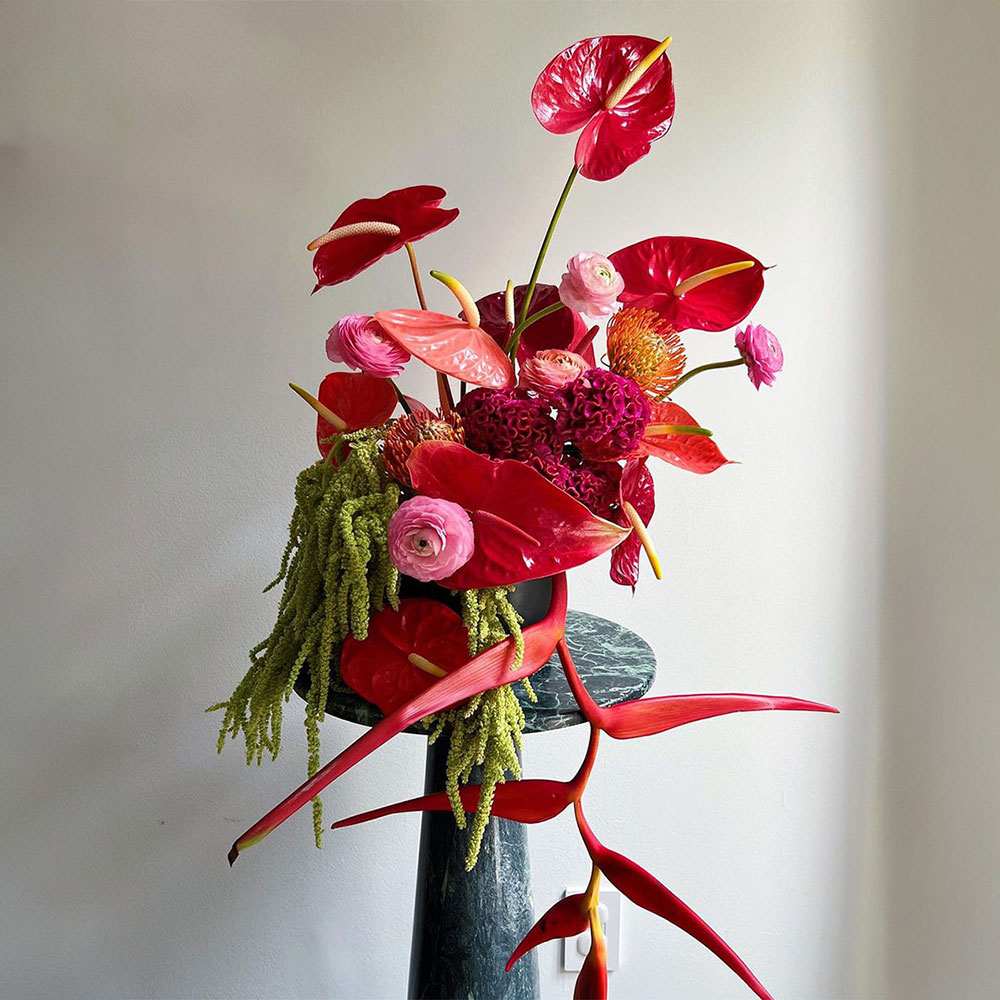
“Flowers are our favorite F word!”

Indulging in Love and Flavor at Playa: A Valentine’s Day Delight







